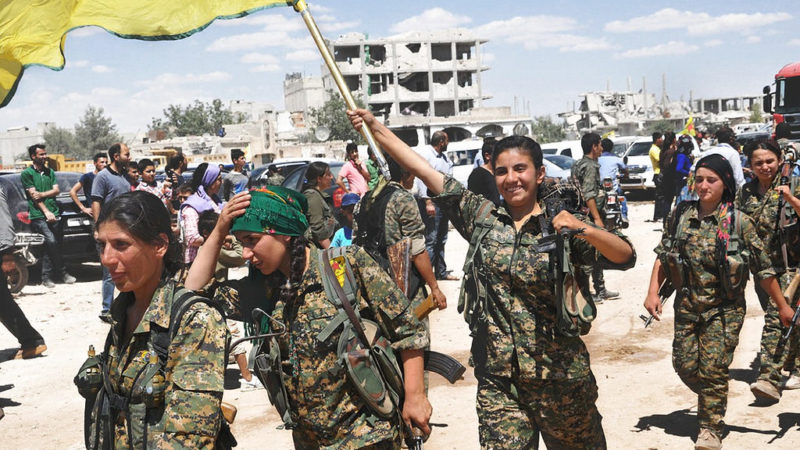While Catalonia was in the headlines this week, another struggle for independence - one the UK should be backing - went unnoticed.

Nationalism has been in the headlines this week. In Catalonia, where there has long been a delicate balancing act between giving Catalans some autonomy and letting them have real independence, an ‘illegal’ independence referendum sparked clashes between police and peaceful secessionists.
But another referendum on self-determination went largely unnoticed. In the loosely-defined region of Kurdistan in the Middle East – an area that includes parts of Iraq, Turkey, Iran and Syria – the Kurds have just voted overwhelmingly (93%) for complete independence.
The Kurds have been indispensable in the fight against Daesh in both Syria and Iraq. They have participated in and led many important operations in Syria particularly, such as the Manbij offensive, and they were crucial in the capture of Northern Aleppo in 2016.
Much of their military response to Daesh has been due to the struggle to capture the lands they see as ‘theirs’. And while this has been mostly successful, they have frequently gone above and beyond to help the Syrian Democratic Forces – and other rebel groups opposed to Daesh – take areas of no historical importance to Kurds.
That being said, the stability of Syria and Iraq is crucial to their end goal of an independent state.
The main players in the region – Iraq, Turkey and Iran – have all denounced the referendum. Indeed, Turkey has been consistently bombing Kurdish positions in Syria since the country entered the war. The US, meanwhile, has said the vote lacked legitimacy.
Even Emmanuel Macron, at a meeting with Iraq’s Prime Minister Haider al-Abadi, failed to support the independence referendum – instead saying there was a need for ‘inclusive government’ in Iraq.
Of course, for France to come out in opposition to Iraq would be a disastrous move while a war is still being fought against Daesh. Macron has said France will mediate between the Iraqis and the Kurds, a potentially positive sign that if and when this war comes to an end – something that seems possible soon – he will help keep peace between the two. Indeed, Iraq hasn’t ruled out military action against the Kurds if they move forward with independence.
And everyone else? The EU, including Britain (for now), China and Russia have all expressed their opposition to the referendum. All believe that secession or further talk of it will create more instability in the region. And perhaps they’re right that it’s not an ideal time for the Kurds to be talking of independence.
But there is rarely an ideal time. The Kurds have waited long enough to become properly independent. That the Kurdish leadership has rejected suggestions that they should negotiate with Iraq on ‘issues of dispute’ highlights the seriousness of the situation – Iraq’s obstinacy suggests such talks would sadly be futile.
Influential US writer Doug Bandow has said America shouldn’t get involved, that the region is too volatile for it to be worth it, and that the Americans would get nothing out of it – but this misses the point.
We in the West have a responsibility to the Kurds, one of the largest ethnic groups on the planet without its own state. As essential allies to the West in its fight in Syria and Iraq, and a persecuted group (especially by Turkey), we owe it to the Kurds to support them at this time.
At the very least, we must help mediate the situation as Macron has promised, and prevent internal conflicts between Iraq and Kurdistan in an already-fractured Middle East. Israel has expressed its support for the Kurds, some might say unsurprisingly, given their strong and historic relationship with the Kurds.
After everything they have done in the fight against Daesh, we must now support them too.
James Alston is a Masters student in History and writes on international politics
Left Foot Forward doesn't have the backing of big business or billionaires. We rely on the kind and generous support of ordinary people like you.
You can support hard-hitting journalism that holds the right to account, provides a forum for debate among progressives, and covers the stories the rest of the media ignore. Donate today.




One Response to “The Kurds have been vital allies in the fight against Daesh. We should be supporting them”
Matthew
It’s by no means the only current struggle for independence that is being overlooked, e.g. Anglophone Cameroon.